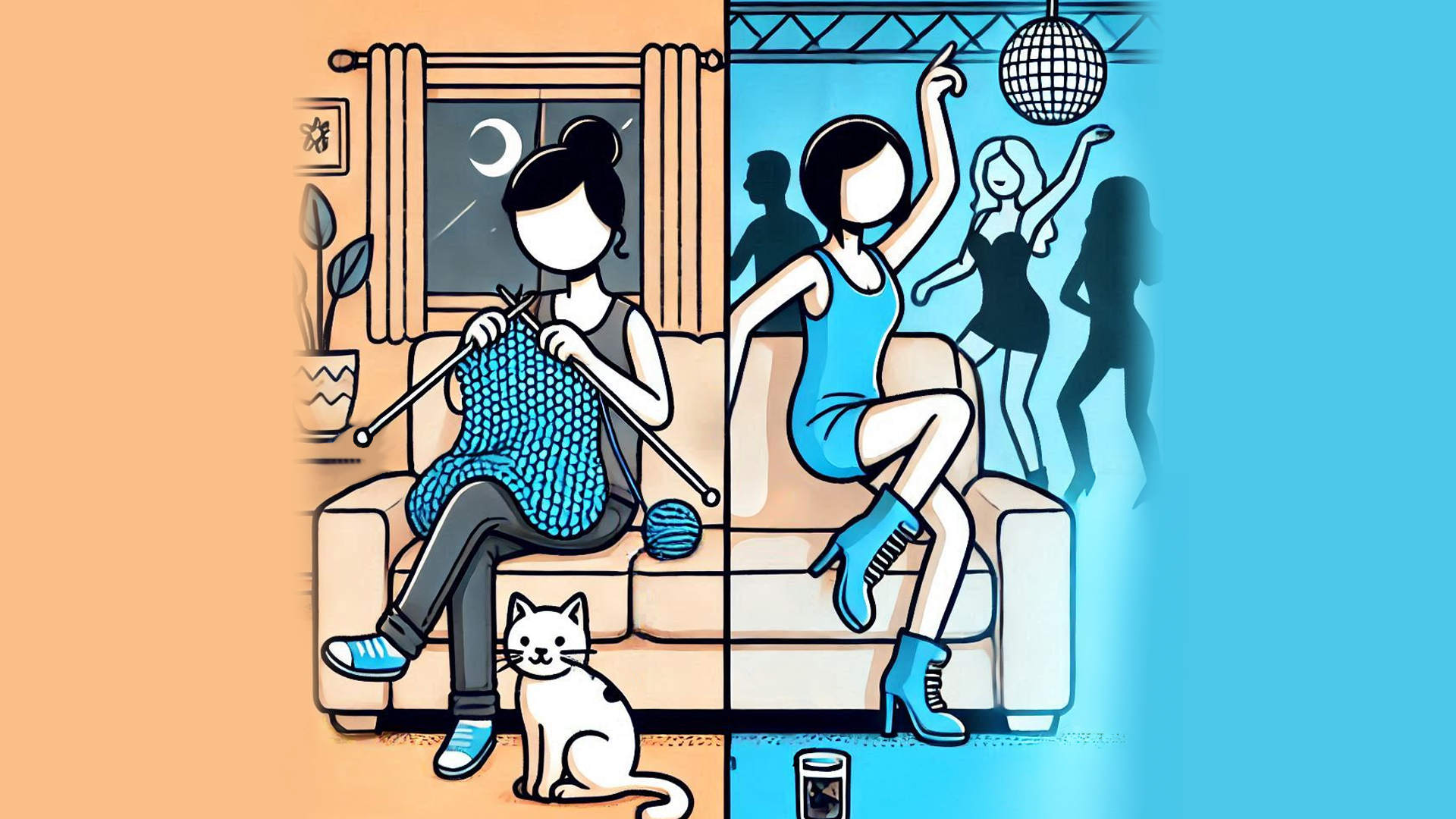Gen Z seem to be more about crochet than clubbing these days. When did this shift happen and what are the probable causes, though?
I love going out. I love the loud music and the pulsating walls. I love dark rooms and sporadic lighting. I love the throng of people that it’s too loud to even attempt conversation with, and the ‘profound’ conversations with strangers you meet for a minute in the smoking area.
At risk of sounding like a cliché, I’m confident that I would have felt right at home in the nocturnal scene of the 1980s or 90s, when youth culture was at its most vibrant, most exciting, and, perhaps best of all, most synthetic (in all senses of the word).
But these days, as I’m reaching my mid-twenties – and especially now that soup season is firmly upon us – it feels almost frowned upon to admit that you still want to go out and dance mindlessly to music that’s so loud it feels like your skull is tingling.
These days, it feels more likely a 20 something will crave a Friday night in with their cat and their crochet instead of at the club, or heading down to the local for a quiet few before calling it a night at 10pm.
@lillygrne Dancing>>> #fyp #fy #foryou #viral #club #dancing #fun #teenagelife ♬ original sound – ilie_fana22
And that’s absolutely fine! I too love to snuggle up with my cat and watch a movie, both of us in our matching crocheted comfies. But with one in three younger Britons socialising less, we must ask: What on earth happened to the culture, and where has the ‘youtdem’ gone?
Brat summer aside, have Gen Z all but abandoned the celebration of youth subcultures that saw their heyday on the streets and in the pubs and nightclubs in the 80s? Now, it seems like our identities have been dimmed, subjected to online categorisation across social media trends.
Without even realising it, or being able to explain it to our parents who didn’t grow up with the same degree of self-imposed surveillance, we’ve traded Mods & Rockers for manfluencers, and repackaged heroin chic as clean girls or ballet core, without any of the toxic fun.
Post-pandemic shift
It goes without saying that the Covid pandemic took what felt like a huge slice of our lives away from us – back when it was illegal to go out of the house for more than one walk a day, never mind throwing it back on the dance floor with people you hardly know.
And its effects are still visible. As a generation, we’re more isolated and disparate from one another than ever before and more likely to get tired early because we spend so many hours a day staring at a screen. We’re less inclined to go out and meet people because the real world feels scary when all the people you already know are hand-held.
In certain circles it feels frowned upon to admit that you actually enjoy dancing like a lunatic and getting home as the sun is starting to come up.
It’s almost as though there’s a stigma that if you still like going out dancing that you’re immature or reckless – that you’re not prioritising things like starting a family or buying a house because you’re too busy partying, and that eventually you’ll grow out of it.
This is also apparent in Gen Z’s approach to dating, as more young people are ditching hook-up culture for long-term partners, and there’s even been a rise in the number of young people settling down to buy a house in recent years.
Prioritising spending
Of course, part of young people’s abandonment of nightlife is to do with the cost-of-living crisis. While a pint used to cost £1.66, you’re now likely to pay around £4.70 on average – London prices usually exceed £6.
And there’s nothing wrong with a cosy night in, least of all that it’s probably cheaper than entry, a few drinks, and a cab home, if of course you’re able to afford somewhere to live in the first place.
But that doesn’t mean that midnight should feel ‘late’ for everyone, or that maybe you don’t find a Friday night in as fun as one where you’re taking shots with strangers and catching the first bus home. What’s more, perhaps this is part of a wider social problem, perpetuated by social media and our tendency to compare our real lives to the highlights of others.
Not only does this mean that it can feel like a clock is ticking on how we spend what time we have, but that because so many young people are choosing to stay in their rooms alone on their phones rather than go out and see where the night takes them, our generation is trapped in a screen-oriented cycle.
Understandably, we find ourselves asking: how are we supposed to go out and meet people when all the kids are on their sofas with their eyes glued to a screen, socialising or shopping, or brain-rotting online, instead of hanging around in parks or busting some moves on the dance floor?
While Gen Z might be seen as ‘healthy’ because they’ve traded bottles of beer for mugs of tea, and they’d rather be rolling out their yoga mats at 6am instead of crawling into bed after a skin-full, I reckon we should be asking: is our anxiety around how our lives will turn out in the future – even our fear of a hangover the morning after – stopping us from living in the present?
In other words: Are we wasting our youth?

















